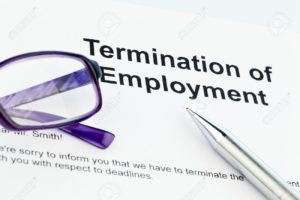

Here is one that takes a real leap for a younger manager or CEO to believe. After hiring someone with all the attendant enthusiasm followed by the training and learning curve, if an employee shows signs of weakness in the job or problems dealing with contemporaries, it is the natural tendency for most of us to go first into coaching mode and reset the observation clock to see if our excellent coaching does the job.
A month or so later, when no apparent change has been noticed, we may move from coaching to a polite warning and maybe even the dreaded note-to-file. Another month, and the probability of a decision to separate the marginal employee becomes obvious and the move initiated. Lawyers will tell you that this progressive chain of moves is good for the company, protecting against lawsuits by a disgruntled former employee.
Then there is the ninety-day clock to consider.
In most states, employees gain rights after the ninetieth day on the job that makes it more difficult to fire an underperforming employee without careful documentation of reasons for concern.
What if we fire an employee before the ninetieth day?
But – before or after that ninety-day line – surprisingly, in post-exit interviews after emotions have dissipated, most former employees (who were  handled respectfully during the separation process) and most managers will agree that the move should have been made sooner. The former employee will often state that they were at least somewhat unhappy in the job, knowing that the fit was not as good as it should be. The manager will most often admit that they did not move aggressively, following best judgment in coaching the employee toward separation much earlier.
handled respectfully during the separation process) and most managers will agree that the move should have been made sooner. The former employee will often state that they were at least somewhat unhappy in the job, knowing that the fit was not as good as it should be. The manager will most often admit that they did not move aggressively, following best judgment in coaching the employee toward separation much earlier.
The conclusion?
Firing fast in most every case is best for everyone, as opposed to long, drawn-out sessions and stressful employee periods of waiting for a verdict in between sessions.
It does sound counterintuitive.
But I would believe the post-exit interviews. Why not conduct your own survey of fellow executives and managers and see what they think. If they agree, you should recalibrate your expectations and act sooner, with the important caveat that employees must always be treated with respect. Remember that there are many times when documentation to file is a required protection for the company against possible lawsuits, especially by protected classes of employees.
610 Views












